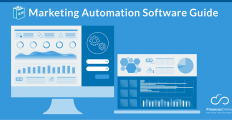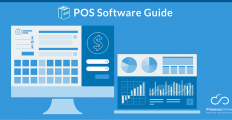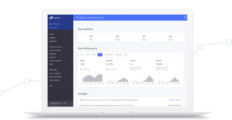
Source: pixabay
Cyberattacks continue to hurt the healthcare industry. The most recent one in healthcare cybersecurity news involves CommonSpirit Health. The second-largest nonprofit hospital chain in the United States is still recovering from a cyber attack that began in early October. The company classified it as a ransomware attack.
Patients, physicians, and subsidiaries are feeling the disruptions from the breach. The hospital system has locked its electronic health record (EHR) systems as part of its forensics investigation. As a result, surgeries were delayed, appointments were canceled, and prescriptions were left unfilled.
This is just one among the hundreds of healthcare cyber attacks that have taken place this year. Based on one report, the healthcare industry experienced 337 attacks just in the first half of 2022. That’s not a bit encouraging, considering that the industry fell victim to ransomware more than any other critical infrastructure sector in the US as reported by the FBI in 2021.
Aside from the disruptions in services, these data breaches also cost millions in damages—an average of $10.1 million per incident. This is higher than any other industry for the last 12 years.
No other than the White House is stepping up the fight against cyber attacks in the healthcare industry. Deputy National Security Advisor for Cyber and Emerging Technology, Anne Neuberger recently spoke about upcoming healthcare cybersecurity standards and guidelines for critical infrastructure. For the healthcare industry, the Department of Health and Human Services (HHS) is working with partners at hospitals and the private sector to put in place minimum cybersecurity standards. More needs to be done to secure devices and broader healthcare, according to Neuberger.
Opportunities in the Healthcare Cybersecurity Market
Cloud-based solutions such as SaaS telemedicine software and CPaaS are becoming the business standard for companies in the healthcare industry. We can expect the same for cloud-based healthcare cybersecurity solutions. Vendors in this niche could see more opportunities as businesses turn to technology to fight cybercrime and the Federal Government seeks partnerships in the private sector to improve cybersecurity.
Industry experts already predict that the healthcare cybersecurity market will witness a double-digit (18%) growth from 2022 to 2028. They estimate the market to reach $15.25 billion by the end of the forecast period. The report points to cloud-based security solutions and services as one of the factors driving the market growth.
With more sophisticated cyber attacks, healthcare providers are looking for solutions that could provide better security. Cloud-based healthcare cybersecurity solutions address this need through advanced technologies like artificial intelligence (AI) and automation. They can also deliver consistent security through reliable authentication and encryption protocols.
Automated backup and recovery, for example, has become a sought-after feature in cybersecurity apps. Data backup to the cloud is an excellent way to protect health data against data failure. Data failure can come from a variety of causes such as software and hardware glitches and corrupted data. Malware and accidental data deletion are also possible causes of data failure.
Moreover, healthcare providers are also integrating hundreds of IoT devices into their daily operations. Wearables used for remote patient monitoring, for instance, are becoming a popular part of patient engagement solutions. AI and automation in healthcare cybersecurity apps can help secure the endpoints of these IoT devices 24/7. They also monitor SaaS-based apps for telemedicine and can help protect against SaaS misconfigurations.
Another segment that could see higher demand is Data Protection-as-a-Service (DPaaS). Aside from the technologies, DPaaS providers can also deliver the expertise needed to tackle complex IT security concerns. With the IT talent shortage, hospitals can rely on managed services like DPaaS to support their IT departments. Access to cybersecurity professionals becomes even more crucial for hospitals since they’re operating in one of the most highly regulated industries. DPaaS can help healthcare providers meet data governance and data protection compliance. Regulations like HIPAA, HITECH, and the Federal Trade Commission Act are a few examples of frameworks that help protect health data and uphold healthcare cybersecurity.






















Leave a comment!